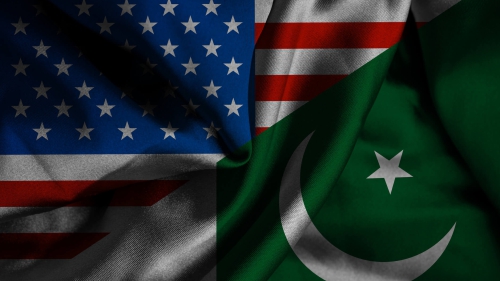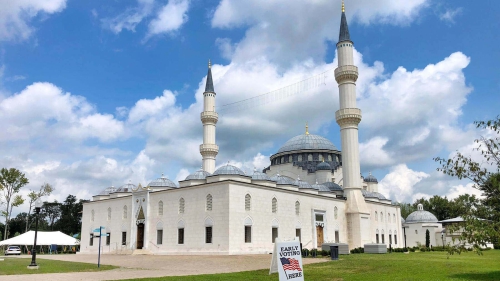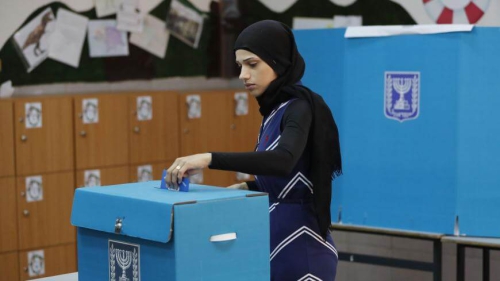Senegal: Remaining Dignified and Peaceful
Senegal has once more beaten the odds, proving that Africa doesn't have to be plagued with violent turmoil in order for peaceful transition to occur. And a peaceful and orderly hand-over of power to the President-elect is indeed taking place in the midst of astonished and cheerful crowds. While defeated President Abdou Diouf is saying farewell to the presidential palace, as incoming President Abdoulaye Wade ready for his difficult mission, Starting April 3, many lessons are ready to be learned.
Senegal is known for its reputation of poverty and economic let-down. Described bluntly by Diouf's campaign manager, it's a sinking ship. While the proud western African nation might be on one level sinking, economically speaking, it is scoring political triumph that is defeating a lingering myth. Few other African countries have demonstrated that poverty in Africa by no means translates into violence and lengthy civil war. Poorer nations don't revolt just because they are poor; they revolt if their poverty is created by the exploitation of their country's resources, oppression and untolerated corruption. Not as if South Africa, Zambia, Benin, Cape Verde, and finally Senegal, who have enjoyed peaceful transformation of power, didn't have some of each. They indeed had plenty. However, when people demand change and their cries go unheard, violence erupts. Emotions run high and blood is shed.
Like every other nation, African or non-African, Senegalese were prepared to seek alternative options if fraud and corruption prevailed over their will. The formula for violence was present, with abundance. Diouf's Socialist party consolidated power in 1960, right after the country gained independence from Colonialist France. Although, elections were quickly incorporated into the Senegalese lives, the government fell short of delivering a comprehensive form of democracy that allows all to participated and to fairly compete. At the same time, campaign funds were under the control of the one party-run government, as is the case in most African countries.
Abdou Diouf was declared President in 1981, and with no interruption to his terms in office, he ruled until this month's defeat. His critics were not only dissatisfied with his three terms in office with little chance for anyone to replace him, but they also accused him of corruption and for fostering a group of elitists at the expense of the ever-expanding class of poor Senegalese.
Diouf's shabby reputation among most Senegalese unleashed on him two roaring volcanoes, once he opened the stage for a fair-handed election system that allows the opposition to strive for power. The first volcano erupted with the impatient crowds roamed the streets of Dakar, the capital, and elsewhere, shouting "Sopi" meaning "change". The second phenomena, introduced by the opening of the system, was the furious and uncompromising list of candidates, headed by Wade, who promised violence if Diouf dared to resort to fraud and cheating. The formula was then, almost complete, for violence to break out. The only missing component was, massive victory for Diouf engulfed by accusations of fraud.
The peoples' displeasure with the government's performance was turning into anger, and Wade's fiery speeches were igniting and rounding up new supporters, On February 27th, the anger was converted into astonishment when the first round of elections specified no winners, By itself, that was a little expected surprise. People wondered how it could be that Diouf didn't win with a smashing majority, as do most Africa's leaders.
The run-off elections held on Sunday, turned the state of astonishment into a state of shock, which quickly faded and was replaced by a cheer heard all over Dakar and perhaps the rest of Senegal. Diouf didn't only lose the elections to Wade, he lost, courageously admitted defeat, congratulated Wade by a phone call and before official results were released, Diouf was seen leaving the presidential palace ready to lead the opposition. Both parties are regrouping, taking their new places and getting aquatinted with the new adjustments in a very civilized manner.
What is happening in Senegal is not a miracle nor is it an exception to the rule. Neither poverty, nor economic set backs directly generate revolutions or give birth to violence. The real accountability resides in the ruling party's ability to accommodate the peoples' need for change, admitting mistakes and accepting the fact that they have failed to deliver prosperity as they promised. When the peoples' will is undermined, and when the use of riot police is the only method offered by the ruler to deal with turmoil, then violence becomes imminent, Thus, rather than judging peoples' experiences based on unfounded generalizations such as "these people are violent" vs. "these people are peaceful", we ought to examine the variables that lead to violence or eliminate it from the roots.
The people of Senegal shouted "sopi" and Diouf listened and stepped out peacefully when he realized that most Senegalese prefer new blood in the government. Cries of "Sopi" were then transformed to shouts of "Hurrah". Therefore, people, mostly don't' resort to violence because they love violence, but because desperation leads them to believe that taking matters into their own hands is better than shameful submission and oppression of wills. It is the leadership that makes the final decision by introducing or withholding the final variable to make the formula of violence complete. Diouf made a wise choice, and most Senegalese could not be happier, Now that a substantial odd has been conquered, its time to get started on overcoming other obstacles defeating other odds, so that the Senegalese will and spirit will be restored.

















